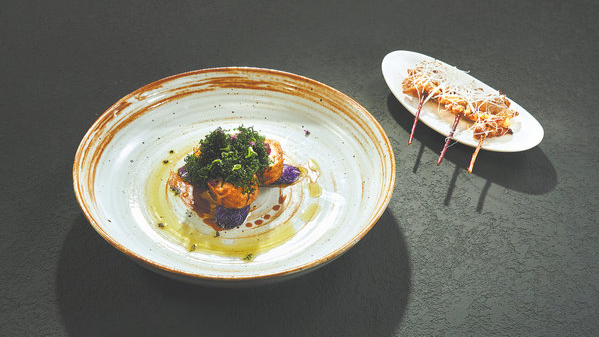
Elegant, composed, and confident, eyes gleaming with focus and hands dancing between flames and appliances is not the image most people conjure up when they imagine a chef. But in Chef of China, a hit reality cooking show, this is exactly the portrait on display.
Gone are the tired stereotypes of burly cooks with sweat-stained collars. Replacing the stereotype are stylish, witty, and fiercely passionate chefs who are also humorous while competing with flair and creating cuisines with heart.
Airing now on Tencent Video, Chef of China unites a dazzlingly diverse cast of culinary talent. From rising young stars to seasoned veterans, from women breaking new ground to men redefining tradition, the show features chefs of all backgrounds — restaurant professionals and home cooks, masters of Chinese flavors and experts in Western techniques who work in China and abroad.
READ MORE: Chinese cuisine evolves into vibrant tapestry
It's a rare gathering of skills, creativity, and personal stories that take center stage to reveal just how wide and dynamic the world of Chinese cuisine has become.
But this is no ordinary cooking competition. It's a culinary battleground. The show begins with 100 chefs — 16 master chefs and 84 challengers. In a dramatic first round, the competitors face a brutal elimination in which only 16 survive to take on the masters; a format that mirrors a Chinese chess match. And, just like chess, only one can win.
Chief director He Shu set a high bar for the "masters" — Michelin stars, Black Pearl accolades, spots on global top-restaurant lists, or legendary status in China's eight major traditional cuisines. Some are executive chefs from five-star hotels with decades of experience.
"What moved me most was their willingness to compete," He says. "They've already made it, but they came to inspire and boost the industry."
The challengers, or "small chefs", were selected from over 5,000 applicants — young talents, seasoned veterans, home cooks, and pros, among whom are a 23-year-old innovator and a 71-year-old spicy crab icon.
"Delicious food is the baseline," He says. "We also value creativity, vision, and potential.
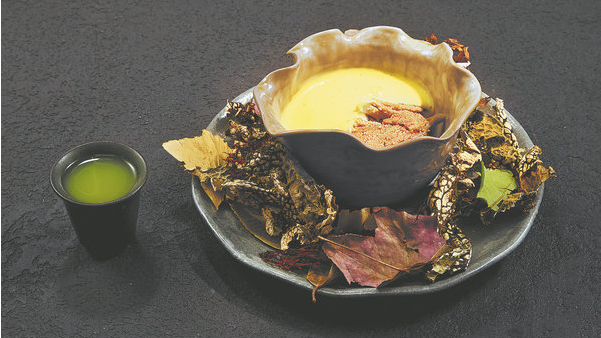
"Our goal is for the audience to truly understand who Chinese chefs are," she adds. "To see their skills, feel their passion, and respect their worth."
From its beginning, Chef of China aimed to be more than just a competition. He and her team collaborated closely with chefs nationwide, seeking input on everything from stage design to ingredient sourcing and format. Their mission is to create a platform that feels both professional and respectful.
That respect became mutual. During filming, many chefs shared ideas and gave feedback, hoping to help the show grow. "It became a two-way journey," He says. "We weren't just documenting them; they were helping shape the show."
Cantonese master chef Chen Xiaodong was especially moved by the diversity — traditionalists, modernists, and chefs blending both styles, including those from ethnic backgrounds. "It's a blooming era for Chinese cuisine," he says. "The talent and energy we're seeing is thrilling."
Reflecting on these changes, Chen has witnessed in China how Cantonese cuisine has evolved over decades, from intricate carvings to molecular gastronomy. Today, he notes a return to simplicity and confidence; refined tableware, clean presentations, and flavor-forward dishes.
"We're at a turning point," he says. "The traditional eight cuisines are just the beginning. Chinese food and chefs deserve to be reintroduced to the world."
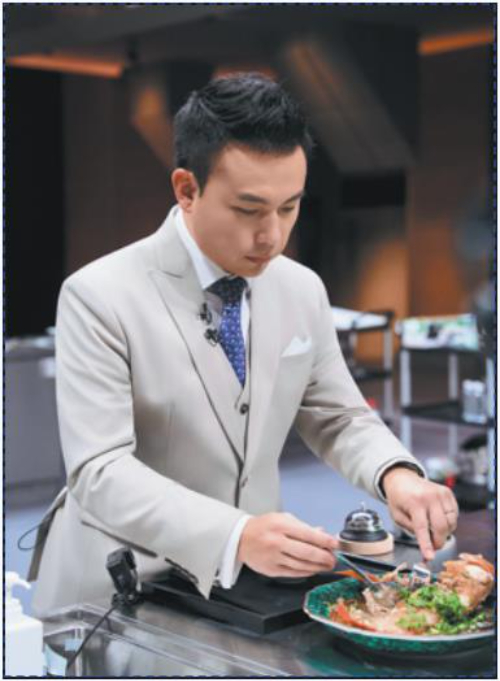
Genuine connections
The show also sparked genuine friendships. After filming, chefs often stayed up late sharing meals to dissect challenges and exchange ideas.
One such bond led to a new venture. Chen, along with fellow chefs Yang Yanbin, Tian Zeyu and Zhang Jian, teamed up during a group round and discovered instant chemistry.
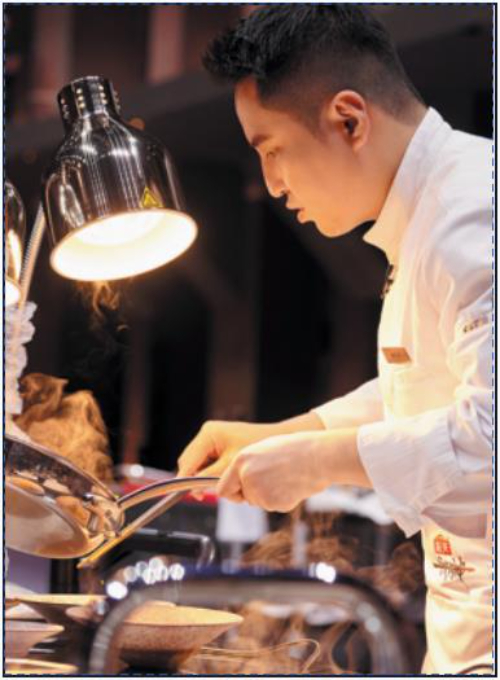
"We'd never worked together before, but on set, we just clicked," Chen recalls. "There was this incredible sense of flow. We were in it not just to compete but to create."
Now, they're launching an eight-handed consecutive dining experience — a rotating pop-up dinner series across their restaurants in Guangzhou and Shenzhen in Guangdong province, Shanghai, and Chengdu in Sichuan province. A collaboration born on the set is now headed to the table.
Organizing a cooking competition in China is no easy feat. With its vast geography and varied culinary traditions, "The differences in lifestyle are just too great," says Chen Xiaoqing, chief adviser to the show and famous food documentary director.
Still, Chen Xiaoqing sees the show as more than a contest. "It's a platform for exchange and growth," he says. "Food expresses cultural diversity and a civilization's depth. Our daily meals are as meaningful as a nation's artistic or scientific achievements. They're part of something great."
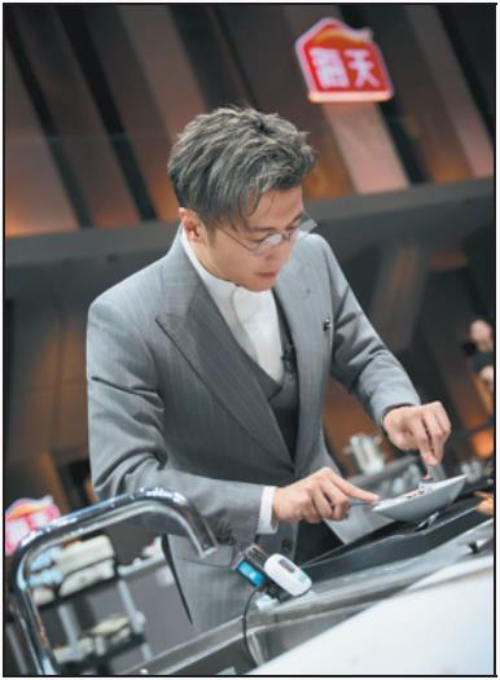
Reflecting that richness, the judging panel spans the culinary spectrum — Zhang Yong, founder of Michelin and Black Pearl-recognized Xin Rong Ji; Nicholas Tse, pop star-turned-chef and global food connoisseur; and Vicky Cheng, chef and owner of Wing, highest-ranked Chinese restaurant on the World's 50 Best Restaurants list.
Director He recalls Tse's reaction to joining the show. "He told me when he pursued cooking at the height of his fame, many didn't understand. But he's truly passionate. Seeing such a professional show means a lot to him.
"We call it a show," she adds, "but sometimes it feels like a documentary or a powerful drama about food and people."
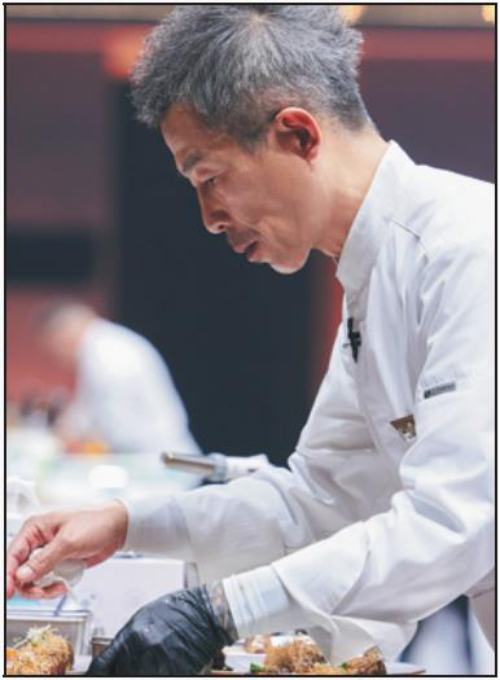
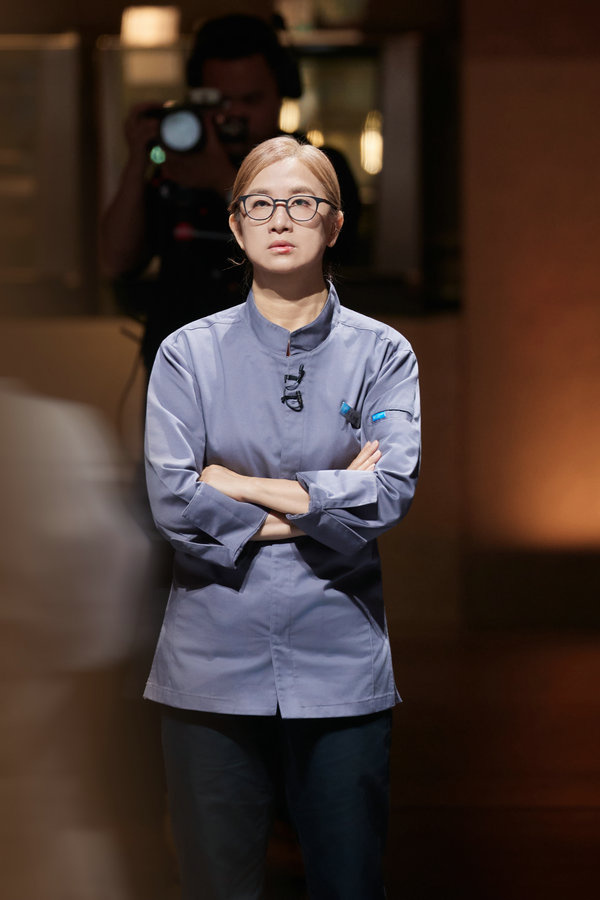
Elevating women
Chef of China showcases a rich mix of chefs — banquet cooks, home chefs, social media creators, and outdoor specialists — broadening how audiences view the profession.
Notably, women are rising in this traditionally male-dominated space. Among them are several outstanding figures: Wei Guirong, the "London Noodle Queen", who taught foreigners to use chopsticks with a single bowl of oil-splashed noodles, along with masters of Sichuan cuisine, Minnan (southern region of Fujian province) homestyle cooks, and young Western cuisine chefs.
Grace Choy, 58, is a standout. She became a chef in her 40s and now runs ChoyChoy, a tiny four-seat private kitchen in Tokyo, which was praised by CNN and the South China Morning Post (SCMP) as one of Asia's best hidden gems.
Competing as a "small chef", Choy's goal isn't to obtain trophies but to share her passion.
Her journey has been tough. Fired from three office jobs and diagnosed with ADHD, she found focus and peace in cooking. "I'm grateful I took the leap and want to inspire others," she says.
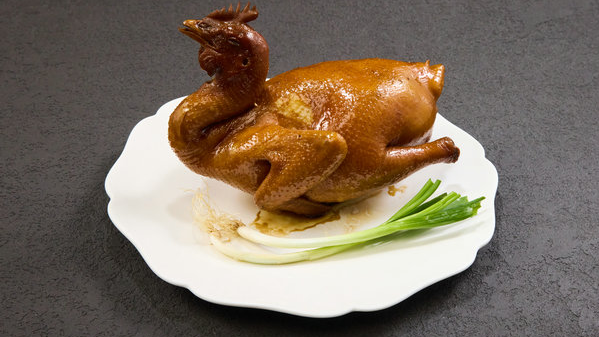
Her signature soy sauce chicken, a classic Cantonese dish elevated with a touch of Japanese koji, won the judges over in the first round. In the second round, she made Queen's Chicken, a dish inspired by postpartum meals reimagined as a celebration of all women. "Every woman deserves to be a queen," she says.
For Choy, cooking is about breaking rules and pushing boundaries. "I learn from both the young and the experienced chefs," she reflects. "Sometimes I feel small next to their talent, but that only fuels my passion."
With nearly a million followers on Facebook and sharing recipes and stories on Xiaohongshu (RedNote), Choy's warmth and authenticity touch many, especially stay-at-home moms who see themselves in her journey.
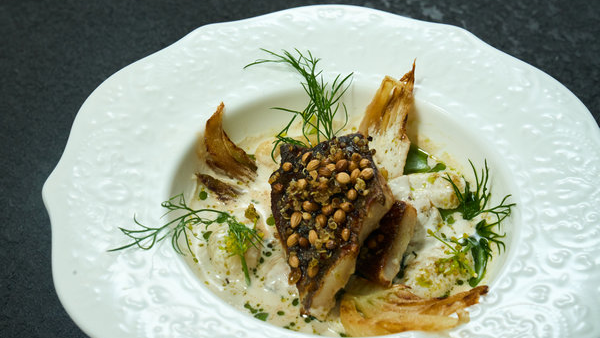
A younger generation
Since the show aired, its impact has been obvious. Choy's tiny Tokyo restaurant is booked through next spring. In Changsha, Hunan province, a chef known for spicy crayfish praised by judge Tse has seen weekend sales quadruple. Meanwhile, a Fujian cuisine specialist in Xiamen now pulls in daily revenue of over 100,000 yuan ($13,900) after winning judges' praise.
Executive producer Zhao Jing often hears stories like these and is struck by the confidence of China's new generation of chefs. "They've traveled widely and blend East and West creatively," she says. "They don't just cook, but also design whole dining experiences."
Zhao's daughter is in high school, and while Zhao hadn't initially considered a culinary career for her, she now sees it as a wonderful, rewarding path. "You can see the spark in their eyes," she says.
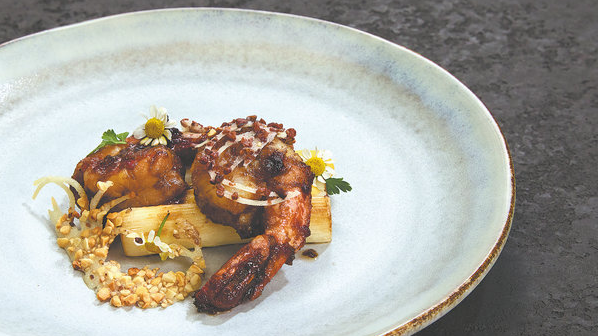
One standout in the competition is 27-year-old Gao Yonghao, the head chef at Beijing's French restaurant Brasserie 1893. Gao captured hearts with a charcoal wok-fried rice cooked on a skimmer, a secret menu hit.
Gao's inspiration came two years ago while crafting a winter menu. He wanted a dish that evoked the festive flavors of lap cheong (a Chinese sausage) and cured pork, infusing smoky charcoal aromas by cooking rice on a skimmer.
Judge Zhang Yong's critique was eye-opening. While the dish was memorable, some flavors overshadowed the natural aroma of the rice. "It shattered my previous thinking," Gao admits.
READ MORE: When AI spices up classic Chinese dishes
Today, Gao's refined version includes crispy fried rice bits that add texture and enhance the fragrance.
For Gao, the competition is about creativity and embracing global influences. "My style includes all cultures and cooking methods," he says. He hopes viewers see the chefs' passion and dedication. "I want my career to be about living authentically and to find joy and meaning in what I do."
With filming wrapped, director He says there's more to explore, and China's rich ingredients and stories still await. Plans for the next season are underway, with chefs eager to return.


